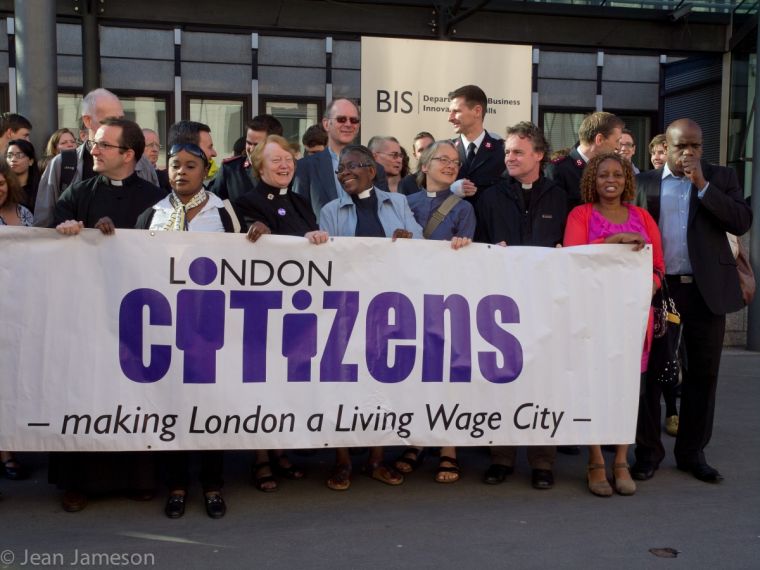The Living Wage - Christian Principles Changing Society For The Better

The Living Wage campaign started in dusty church halls in east London, yet it's now championed in the swanky air conditioned offices of the City of London. How did a well meaning group of church members, along with like-minded people from local schools, charities and unions launch one of the most successful social and economic campaigns of the 21st Century?
Simply because it works for everybody. Though it has taken 15 years or so to convince large numbers of people, the message is now clear – paying people enough to live a decent life isn't only good for them and their families. It's good for everyone. In fact, the enthusiasm for the Living Wage has become so widespread that former Chancellor George Osborne paid the campaign the ultimate compliment by stealing its name for his 'National Living Wage', which was a rebranding of the Minimum Wage.
Unlike the Minimum Wage, the real Living Wage is independently calculated on what it costs to actually live. This week saw the new hourly rates revealed as well as a slew of new employers being announced. The hourly Living Wage rate is now £9.75 per hour in London and £8.45 per hour for the rest of the UK.
The Living Wage is that rarest of political achievements – a win-win. After experiencing its effects; workers, bosses, politicians and many more have enthusiastically embraced the campaign. Though many may not realise it, the Living Wage is a Christian idea – first developed in Catholic Social Teaching in the late 19th Century and fought for by churches in the Citizens UK alliance for the past 15 years.
First, and most importantly, the Living Wage benefits the employees themselves. This can, of course, be a profound change. The ability to provide for yourself and your family is vital to the dignity of work. Especially in tough economic times, the real Living Wage makes the difference between just scraping by and being able to participate in society in a decent way. Put simply, employees benefit because they earn enough to feed and clothe their families.
Employers also benefit, because they get better motivated staff – and retain them for longer. Raquel, a care worker, said, "Being paid the Living Wage has made a huge change but the most important thing is my employer really cares about its staff." KPMG research found that this isn't just anecdotal. "We have seen the benefits of lower absence and a more engaged workforce," said KPMG's Marianne Fallon. "Our research shows that there is more to be gained by employers adopting a Living Wage strategy integrated within their broader business strategy."
It isn't just those businesses paying the Living Wage that benefit, though. Economists argue over the so-called 'multiplier effect', but what is clear is that if people at the bottom end of the income scale have more in their pockets, they're likely to spend more, boosting demand – especially in areas of economic deprivation.
The beneficial effects don't end there though. The taxpayer benefits from the Living Wage because the social security bill is lowered. Academics at Queen Mary, University of London, found that, "If all low-paid Londoners were paid a living wage this could save the government £823 million a year by increasing the tax base and reducing benefit spending."
What about young people? Well, they benefit too. If someone under 25 works for a Living Wage accredited employer then they are included in the benefits, unlike the government's National Living Wage which is lower for those under 25.
Because the real Living Wage is a voluntary scheme, those small businesses that are just starting out can introduce it when they're profitable. That means the dire warnings which preceded the introduction of the minimum wage and which are sometimes wheeled out in opposition to the Living Wage don't apply. A company can opt in when it is ready. More than that, consumers are beginning to seek out the Living Wage logo as the mark of an ethical company in much the same way man of us do with the Fair Trade logo.
More than just the stats though, the Living Wage says something about us as a society. It's about paying people what it costs to live; showing them the dignity of a decent wage means they can actually participate it society - the Living Wage calculation allows for a one week UK holiday and a (non-smart) mobile phone, for example.
In an economy which has spawned benefit sanctions, food banks, payday lenders and the rest, the Living Wage has become a beacon of how politics could be.
Rather than a zero sum game, it's a genuinely positive policy for all.
Follow Andy Walton on Twitter @waltonandy











